Filter by
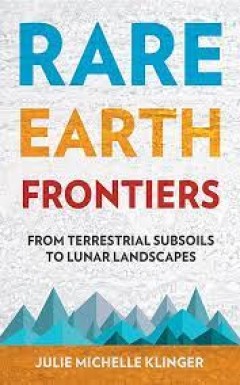
Rare Earth Frontiers From Terrestrial Subsoils to Lunar Landscapes
Owing to their unique magnetic, phosphorescent, and catalytic properties, rare earths are the elements that make possible teverything from the miniaturization of electronics, to the enabling of green energy and medical technologies, to supporting essential telecommunications and defense systems. An iPhone uses eight rare earths for everything from its colored screen, to its speakers, to the min…
- Edition
- -
- ISBN/ISSN
- 9781501714603
- Collation
- -
- Series Title
- -
- Call Number
- -
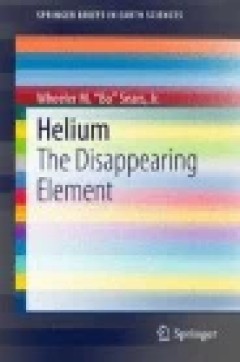
Helium The Disappearing Element
The subject of the book is helium, the element, and its use in myriad applications including MRI machines, particle accelerators, space telescopes, and of course balloons and blimps. It was at the birth of our Universe, or the Big Bang, where the majority of cosmic helium was created; and stellar helium production continues. Although helium is the second most abundant element in the Universe, i…
- Edition
- 1
- ISBN/ISSN
- 978-3-319-15122-9
- Collation
- XIII, 138
- Series Title
- SpringerBriefs in Earth Sciences
- Call Number
- 641 WHE h
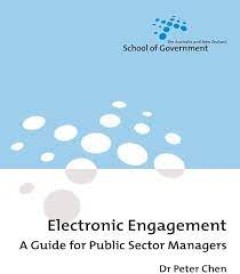
E-engagement: A guide for Public Sector Managers
Over the last twenty years, advanced communication technologies have become pervasive throughout Western society. These technologies have not only revolutionised the delivery of public and private services, they have shaped consumers’ expectations about service quality. This guide (written for managers who have an interest in expanding their approach to public engagement, rather than IT profe…
- Edition
- -
- ISBN/ISSN
- -
- Collation
- -
- Series Title
- -
- Call Number
- -
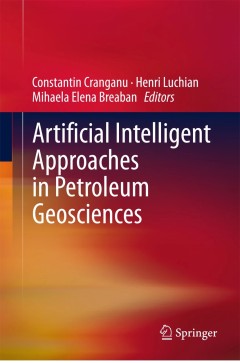
Artificial Intelligent Approaches in Petroleum Geosciences
This book presents several intelligent approaches for tackling and solving challenging practical problems facing those in the petroleum geosciences and petroleum industry. Written by experienced academics, this book offers state-of-the-art working examples and provides the reader with exposure to the latest developments in the field of intelligent methods applied to oil and gas research, explor…
- Edition
- Ed. 1
- ISBN/ISSN
- 978-3-319-16531-8
- Collation
- XII, 290
- Series Title
- -
- Call Number
- 006.3 ART a
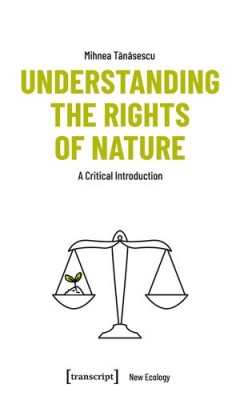
Understanding the Rights of Nature : A Critical Introduction
Rivers, landscapes, whole territories: these are the latest entities environmental activists have fought hard to include in the relentless expansion of rights in our world. But what does it mean for a landscape to have rights? Why would anyone want to create such rights, and to what end? Is it a good idea, and does it come with risks? This book presents the logic behind giving nature rights and…
- Edition
- -
- ISBN/ISSN
- 9783839454312
- Collation
- -
- Series Title
- -
- Call Number
- 333 TAN u

Arming the Confederacy: How Virginia’s Minerals Forged the Rebel War Machine
This is a fresh look at the American Civil War from the standpoint of the natural resources necessary to keep the armies in the field. This story of the links between minerals, topography, and the war in western Virginia now comes to light in a way that enhances our understanding of America’s greatest trial. Five mineral products – niter, lead, salt, iron, and coal – were absolutely essen…
- Edition
- Ed. 1
- ISBN/ISSN
- 978-3-319-14508-2
- Collation
- XV, 206
- Series Title
- -
- Call Number
- 549 WHI a

Aquatic Microbial Ecology and Biogeochemistry: A Dual Perspective
This book highlights perspectives, insights, and data in the coupled fields of aquatic microbial ecology and biogeochemistry when viewed through the lens of collaborative duos – dual career couples. Their synergy and collaborative interactions have contributed substantially to our contemporary understanding of pattern, process and dynamics. This is thus a book by dual career couples about dua…
- Edition
- Ed. 1
- ISBN/ISSN
- 978-3-319-30259-1
- Collation
- XVII, 300
- Series Title
- -
- Call Number
- 551.48 AQU a
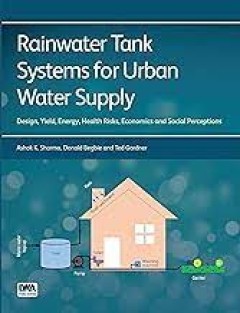
Rainwater Tank Systems for Urban Water Supply Design, Yield, Energy, Health …
Rainwater tank systems have been widely adopted across the world to provide a safe local source of water in underdeveloped rural areas, and as a substitution for mains water for non potable end uses in water stressed urban areas. They also provide flood control in monsoonal climates like Korea or in combined sewer systems like in Germany. The importance of these systems in cities has grown, as …
- Edition
- -
- ISBN/ISSN
- 9781780405360
- Collation
- -
- Series Title
- -
- Call Number
- -
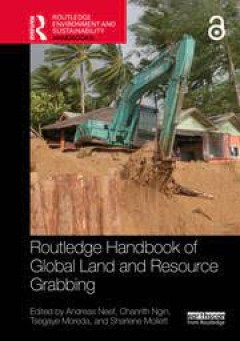
Routledge Handbook of Global Land and Resource Grabbing
This handbook provides a cutting-edge, comprehensive overview of global land and resource grabbing. Global land and resource grabbing has become an increasingly prominent topic in academic circles, among development practitioners, human rights advocates, and in policy arenas. The Routledge Handbook of Global Land and Resource Grabbing sustains this intellectual momentum by advancing methodologi…
- Edition
- -
- ISBN/ISSN
- 9781000902358
- Collation
- -
- Series Title
- -
- Call Number
- -
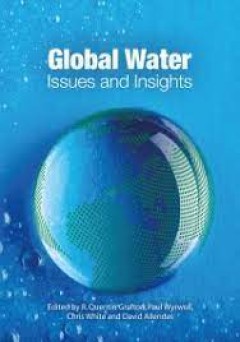
Global Water Issues and Insights
This book brings together some of the world’s leading water researchers with an especially written collection of chapters on: water economics; transboundary water; water and development; water and energy; and water concepts.
- Edition
- -
- ISBN/ISSN
- -
- Collation
- -
- Series Title
- -
- Call Number
- -
 Computer Science, Information & General Works
Computer Science, Information & General Works  Philosophy & Psychology
Philosophy & Psychology  Religion
Religion  Social Sciences
Social Sciences  Language
Language  Pure Science
Pure Science  Applied Sciences
Applied Sciences  Art & Recreation
Art & Recreation  Literature
Literature  History & Geography
History & Geography